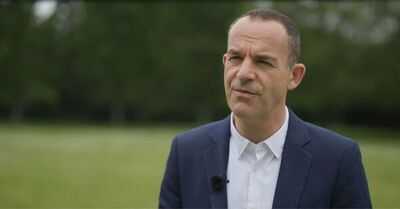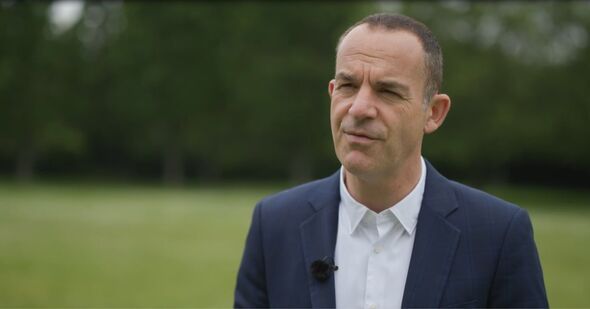

Martin Lewis has said that one group of people would be advised to opt out of the winter fuel payment - as it would make it 'more simple'. The personal finance expert spoke out after Chancellor Rachel Reeves reinstated the money for around 9 million pensioners who had it axed last year.
The £2-300 in cash is to help with fuel bills. However there is also a means-tested cut off point after which people won't get it - and will probably be paid the money initially but it will have to be paid by some mechanism which the Department for Work and Pensions has not yet explained.
Speaking, Mr Lewis said that in some cases it would be far simpler to just decide to opt out of the payment, rather than have it land before ending up having to repay it. Mr Lewis emphasised that currently it had not been explained by the DWP what the 'opt out' procedure would be - but at this point he believes it will be more straightforward for those earning over £35,000.
On the podcast, caller Denise asked: "My question relates to a single person household of state pension age but under 80 years old. If your total income is over the £35,000 threshold and therefore your winter fuel payment is to be clawed back through PAYE or self assessment will the whole sum of £200 be clawed back or only a percentage according to your personal tax liability.
"If 100 per cent is to be clawed back then would it be simpler to opt out and are there any pros and cons in doing so?"
Martin replied: "Let's say you earn £40,000 of taxable income. You're due to get the £200 payment will you, because you're a basic rate taxpayer lose 20 per cent of that income? No. This is a cliff edge. If you earn £35,000 exactly or less you will get the £200 in your payslip because you're under 80.
"If you earn £35,000 and a penny, you lose the entire £200. It is not a graduated scheme, it is a cliff edge scheme so in your case I'm presuming you will get nothing. Would it be simpler to opt out? Possibly yes although the opt out mechanism is the one thing that we don't have much detail on yet. But in your particular case as you're a single pensioner if you're almost certain to have over £35,000 income in this current tax year, opting out is the simplest thing to do once you are able to do so. I can't think of any reason why you wouldn't want to opt out.
"I give myself the slight caveat in that the opt out and when they publish it there might be a reason but at the moment I can't see any reason." Another caller Elaine, said she is a state pensioner and also works part time. She reckoned she earns just under £35,000 but also gets savings interest and interest from her cash ISAs. She said: "Will that be included in the total amount of income because if it does then it puts me over the £35,000 and I won't get it.
Martin replied: "The first thing to say is the means test will be based on your taxable income for the current year that is 2025-6. It is all of your earnings that are subject to income tax. So that is is any private pension income, any state pension income, any employment income, any savings interest outside of an ISA. The interest you get inside of an ISA doesn't count, the interest outside of an ISA does count.
"We don't yet know if Premium Bond wins count or not. I'm almost certain they don't count because they're not taxable income but I'm waiting to get that confirmed.
"While the Personal Savings Allowance is an amount you are allowed to earn of savings interest tax free - as a basic rate taxpayer you can earn £1,000 of interest outside an ISA tax-free - that interest still counts towards your tax-free earnings for winter fuel payment.
"So let me just do a really simple example: you earn £1,000 of interest inside an ISA. Doesn't count. You earn £500 of interest within your Personal Savings Allowance so you don't pay tax on it. That £500 does count towards the £35,000 a year threshold."
Mr Lewis said in Elaine's case, because she hasn't used her full cash ISA £20,000 limit, she could move her savings into the cash ISA, the interest wouldn't count and therefore she wouldn't be over the threshold and she would get the winter fuel payment. Elaine said: "I'll do that then."
Mr Lewis said investment dividends outside an ISA count, carer's allowance, incapacity benefit and other taxable state benefits also count.
In terms of what doesn't count towards the £35,000 earnings amount Mr Lewis said it included the winter fuel payment itself, investment income or savings income inside ISAs, the tax free lump sum from a pension, capital gains, and non-taxable benefits like Attendance Allowance, Disability Living Allowance Pension Credit and PIPS all don't count towards the £35,000. He added: "If it's generally taxable, it counts, if it's generally not taxable, it doesn't count."
To listen to the full podcast .